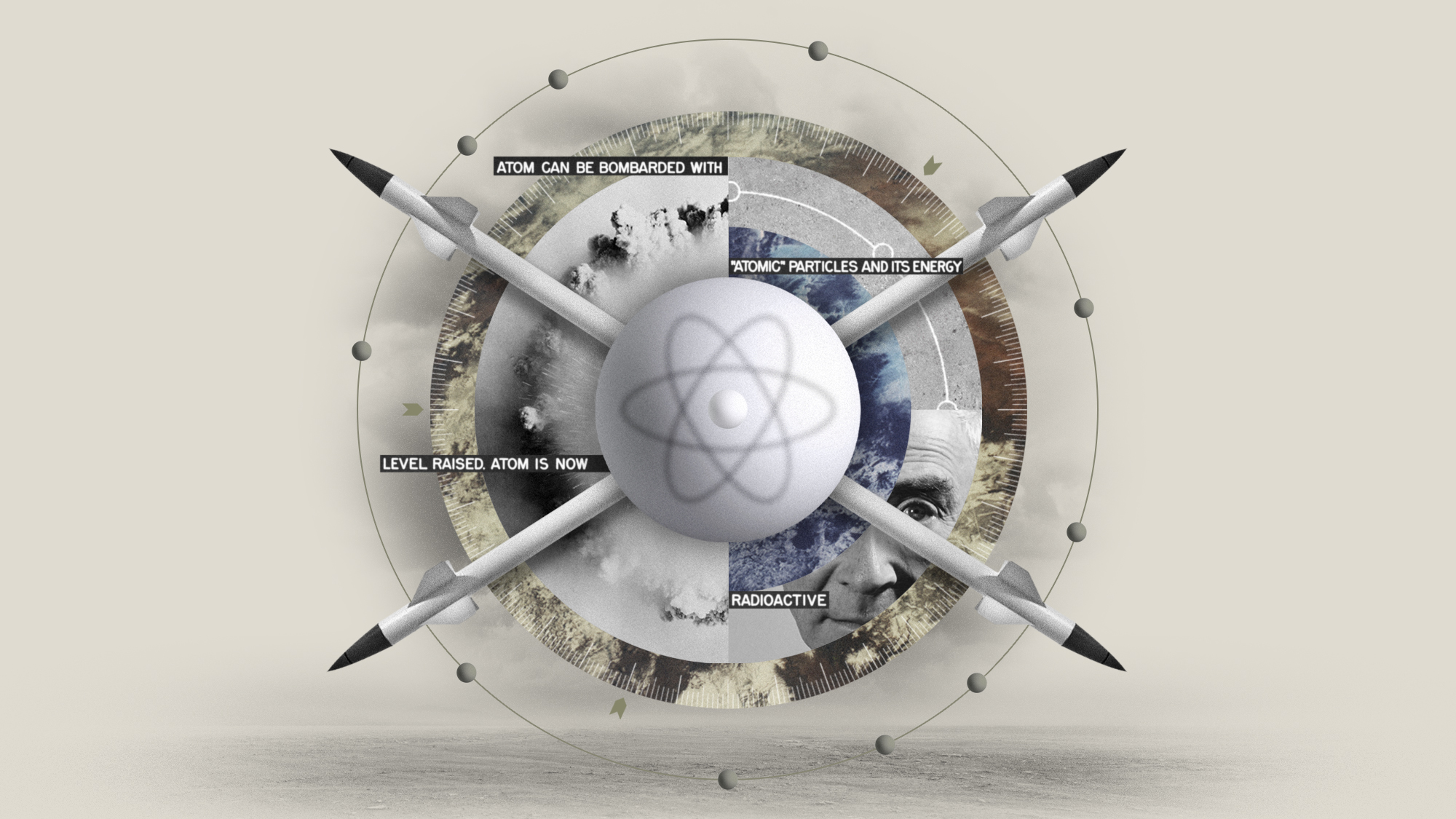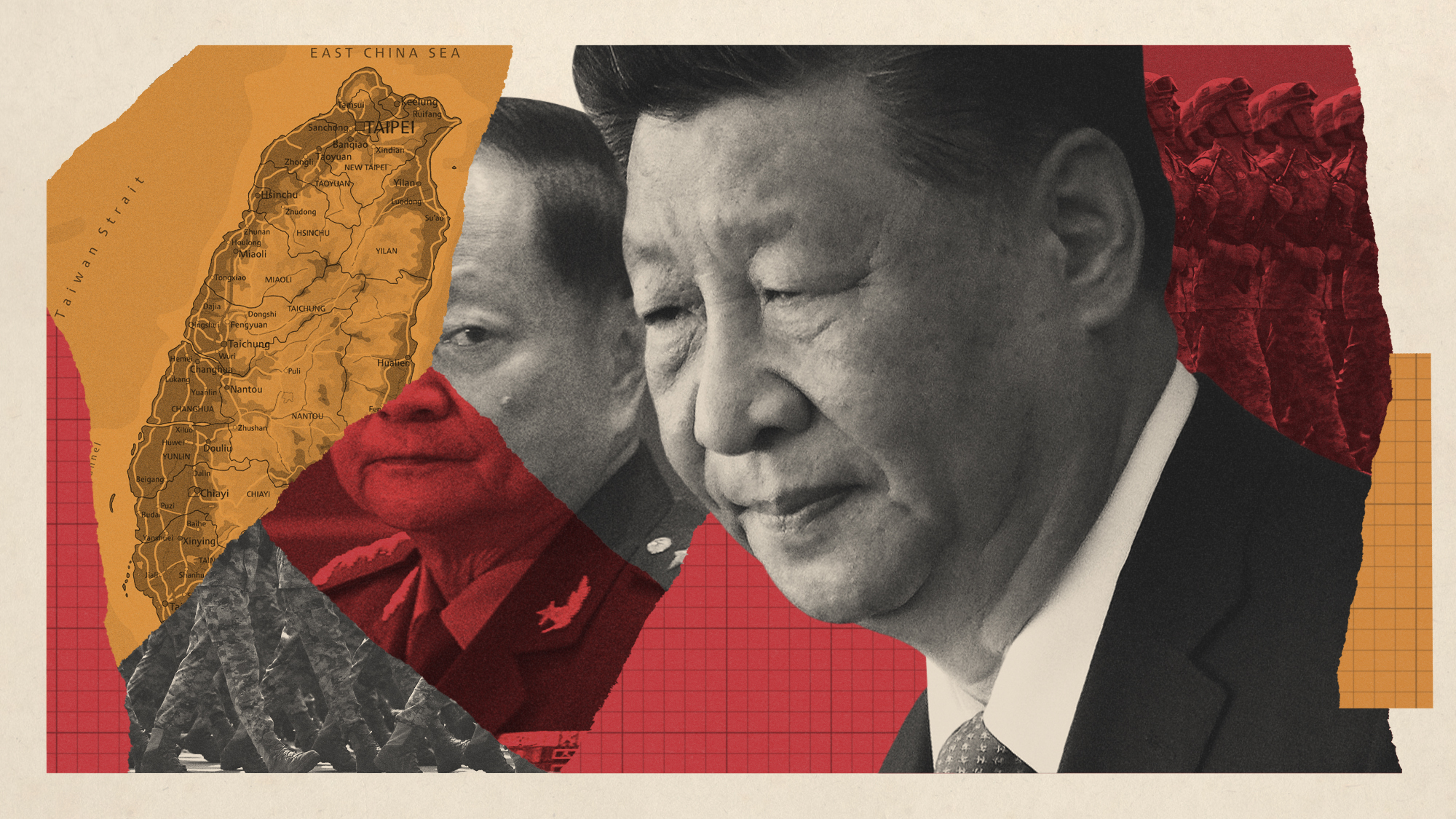Is the world in a new nuclear arms race?
Rise in arms spending heralds a dangerous new era


A free daily email with the biggest news stories of the day – and the best features from TheWeek.com
You are now subscribed
Your newsletter sign-up was successful
The nuclear nightmares of the Cold War are back. The world's nine nuclear-armed nations — including the United States, Russia and China — "spent a combined total of $91.4 billion on their arsenals in 2023," said The Associated Press, a surge of weapons building and modernization that makes international conflicts much more fraught with apocalyptic danger. "We have not seen nuclear weapons playing such a prominent role in international relations since the Cold War," said Wilfred Wan of the Stockholm International Peace Research Institute.
That means a lot more saber-rattling. NATO Secretary-General Jens Stoltenberg is flexing the alliance's "nuclear muscles," Politico said, with suggestions it should deploy nuclear weapons more widely to deter threats from Russia, China and North Korea. The rise of China's nuclear program, he said, is particularly alarming. "NATO may face something that it has never faced before, and that is two nuclear-powered potential adversaries — China and Russia." A new arms race is on.
What did the commentators say?
"The U.S. needs more nukes," Hal Brands said at Bloomberg. President Joe Biden in 2021 briefly considered a "no first use" policy for America's nuclear arsenal, but "America's adversaries don't share the dream of a nuclear-free world." China doubled the size of its own arsenal in recent years, capable of striking at U.S. bases — and allies — in the Pacific. The U.S. has always prioritized a "nuclear advantage" over its rivals, said Brands. Building more weapons "is vital to the credibility of America's global defense posture."
The Week
Escape your echo chamber. Get the facts behind the news, plus analysis from multiple perspectives.

Sign up for The Week's Free Newsletters
From our morning news briefing to a weekly Good News Newsletter, get the best of The Week delivered directly to your inbox.
From our morning news briefing to a weekly Good News Newsletter, get the best of The Week delivered directly to your inbox.
"More warheads will not make us safer," Robert Rust said at the Union of Concerned Scientists blog. We already learned during the Cold War that "any quantitative advantage" the U.S. might gain by building more nukes "will inevitably evaporate." The other guys will catch up quickly. But it would be expensive — a problem when the U.S. defense budget already threatens to exceed $1 trillion a year. A new nuclear arms race "will have no winners, only losers."
What next?
Stoltenberg's comments drew backlash from Russia, Reuters said. "This is nothing but another escalation of tension," said Kremlin spokesman Dmitry Peskov. And NATO tried to walk back the notion that it might deploy nuclear arms more widely. "We have an ongoing modernization program to replace legacy weapons and aircraft," a spokesperson said. "Beyond that, there are no significant changes to our nuclear deterrent."
"Ideally, more aggressive U.S. diplomacy might bring China to the table for tripartite arms talks with Russia and the United States," said The Washington Post. But the prospects for such talks — or an agreement to put limits on a new arms race — "are dim." But Presidents Xi Jinping and Vladimir Putin don't show the same "flexibility or pragmatism" offered by predecessors like Ronald Reagan and Mikhail Gorbachev, who started the U.S. and Russia on the path of reducing their nuclear stockpiles. Instead, China and Russia now seem to have a "desire for heightened geopolitical struggle." That's the dilemma the United States faces now. "Diplomacy takes two to tango, or, in this case, three."
A free daily email with the biggest news stories of the day – and the best features from TheWeek.com
Joel Mathis is a writer with 30 years of newspaper and online journalism experience. His work also regularly appears in National Geographic and The Kansas City Star. His awards include best online commentary at the Online News Association and (twice) at the City and Regional Magazine Association.
-
 How are Democrats turning DOJ lemons into partisan lemonade?
How are Democrats turning DOJ lemons into partisan lemonade?TODAY’S BIG QUESTION As the Trump administration continues to try — and fail — at indicting its political enemies, Democratic lawmakers have begun seizing the moment for themselves
-
 How did ‘wine moms’ become the face of anti-ICE protests?
How did ‘wine moms’ become the face of anti-ICE protests?Today’s Big Question Women lead the resistance to Trump’s deportations
-
 The UK expands its Hong Kong visa scheme
The UK expands its Hong Kong visa schemeThe Explainer Around 26,000 additional arrivals expected in the UK as government widens eligibility in response to crackdown on rights in former colony
-
 ‘Hong Kong is stable because it has been muzzled’
‘Hong Kong is stable because it has been muzzled’Instant Opinion Opinion, comment and editorials of the day
-
 How are Democrats trying to reform ICE?
How are Democrats trying to reform ICE?Today’s Big Question Democratic leadership has put forth several demands for the agency
-
 What do Xi’s military purges mean for Taiwan?
What do Xi’s military purges mean for Taiwan?Today’s Big Question Analysts say China’s leader is still focused on reunification
-
 Why is Tulsi Gabbard trying to relitigate the 2020 election now?
Why is Tulsi Gabbard trying to relitigate the 2020 election now?Today's Big Question Trump has never conceded his loss that year
-
 What is at stake for Starmer in China?
What is at stake for Starmer in China?Today’s Big Question The British PM will have to ‘play it tough’ to achieve ‘substantive’ outcomes, while China looks to draw Britain away from US influence



